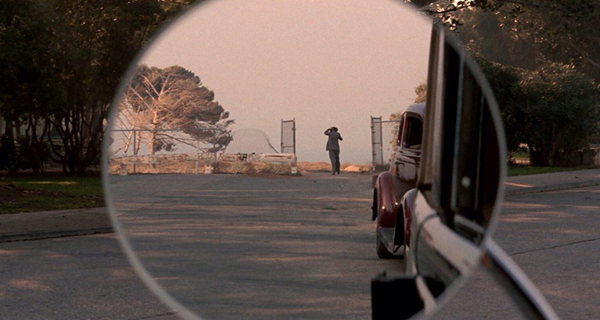Five questions about cinematic beauty
After the summer, film scholar Dr. Julian Hanich of the Faculty of Arts at the UG will start scientific research on cinematic beauty, for which he has been awarded a research grant from NWO. But what exactly is cinematic beauty, and why is experiencing cinematic beauty valuable? Five questions about his research.
Text: Marjolein te Winkel
First, can you explain what cinematic beauty is?
"Cinematic beauty is the pleasurable feeling you experience as a viewer when you consider a film as beautiful. We can enjoy beauty in film, when we are enraptured by the beauty of nature in a film, the beautiful looks of a character, or by a protagonist's good deed. But a film can also show horrible or ugly things in a beautiful way. Then you are talking about the beauty of a film (rather than in a film): about the camera movements, editing, music, you name it.
"Cinematic beauty is not tied to a particular type or genre, and not even just to movies. People can experience beauty in feature films and documentaries, but also in animation and art films, and even in music videos, commercials, YouTube clips, GIFs and TikTok posts. I limit my research to films, but I just want to point out: cinematic beauty is something we are all familiar with, perhaps without realising it too much."
Not everyone likes the same films, or the same aspects of films. Doesn't that make the research very complicated?
"No, because the goal of my research is not to define what is beautiful, but to find out how we experience beauty in films. Beauty is something that has characterised film from its earliest days, but strangely enough there has never been extensive research into how we experience beauty."
How will you investigate this?
"The NWO grant will give me time to write a book on the subject, and to hire a PhD student and a post-doc researcher. The PhD student will focus on the history of film theory and what has been said and written in it on the subject of beauty. This will require quite a bit of archival research into historical writings on films and the different views of beauty held by film scholars.
"The post-doc will seek answers to the question of what it is like to experience a film as beautiful through in-depth interviews. This could be done, for example, by asking participants in our research to take a part of a film they think is beautiful and watch it in a research setting, and immediately afterwards answer questions about their experience. In this, we really want to get to the heart of the matter: what is it like to experience beauty? So not why they like a film or a scene, or what about the film or scene they like, but really how they experience its beauty. What does it do to you?"

Why is it important to explore this?
"Watching a movie these days is an almost everyday experience. But when you like a film, experience the beauty of a film, we hardly have any language or knowledge at our disposal to put that experience into words. I want to fill that gap with my research.
"We should not underestimate the power of art in general, and the power of film in particular. Film is capable of making us look differently at what we already know. A film about the city you live in can make you glad you live in such a beautiful city. Moreover, film can introduce you to a world you don't know. Cinematic beauty, for example, can make people aware of the beauty of nature and the importance of preserving it, and can prompt us to change our own behavior to protect our environment.
"Furthermore, by better understanding how cinematic beauty is experienced, we can emphasise the positive aspects of cinematic beauty more and give it more attention. Experiencing beauty makes us happy. After an exhausting pandemic and with impending climate disasters and a war in Europe whose end is not in sight, we can all use moments of happiness."
In what films do you personally experience that cinematic beauty?
"One of my favorite filmmakers is Friedrich Wilhelm Murnau. He made a number of very beautiful films, for instance, Sunrise in 1927 and Tabu in 1931. Moreover, the short film Eaux d'Artifice from 1953 by the American experimental filmmaker Kenneth Anger I find of a particularly stunning beauty that touches me every single time I watch the film. And there’s beauty in Portrait de la jeune fille en feu from 2019, a recent French drama about a love affair between two women, directed by Céline Sciamma. The beauty is seen in the landscape and clothing, among other things.
"But for me, the epitome of a filmmaker concerned with beauty is Terrence Malick, an American filmmaker. He explores the beauty of the world he shows and the role the medium of film plays in showing that beauty, and perhaps even intensifying it.
"Sometimes the beauty of a film is merely in a particular scene rather than in the film as a whole. So even in an action film such as Miami Vice (2006), one can find very beautiful scenes: for instance, an overhead shot of two motorboats that seem to elegantly float over the sea at night. This moment of beauty in an otherwise action-laden film grabs me every time."

More news
-
19 January 2026
Digitization can leave disadvantaged citizens in the lurch
-
13 January 2026
Doing good in complex situations
